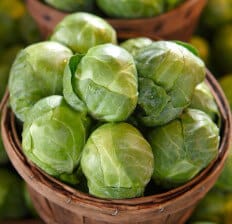 1. Helps Protect Against Cancer with Antioxidants & Phytochemicals
1. Helps Protect Against Cancer with Antioxidants & Phytochemicals
Cruciferous vegetables including Brussels sprouts are associated with a lower risk of cancer because they protect against free radical damage, or oxidative stress, and DNA-mutation.
Researchers report that the sulfur-containing compounds called sulforaphane are what give cruciferous veggies their cancer-fighting abilities, in addition to their distinct smell and sometimes bitter taste. Sulforphanes inhibit the harmful enzyme histone deacetylase (HDAC), known to be involved in the progression of cancer cells.
Brussels sprouts nutrition is also protective because they contain compounds called glucosinolates and isothiocyanates that can reduce your risk of cancer. (2) Studies show that consuming Brussels sprouts specifically can reduce the risk for colon cancer.
One study found that Brussels sprouts’ high levels of glucosinolates, a special kind of compound that fights oxidative stress and helps the body detoxify itself, significantly increases the body’s defense against cancer progression.
Researchers have concluded that the antioxidants and enhanced detoxification enzyme levels that people experience after eating Brussels sprouts are partly responsible for stopping DNA damage in which cancerous cells mutate and form tumors. (3)
This decreases the risk for such cancers as skin cancer (melanoma), esophageal, breast, prostate, colon and pancreatic. Additionally, Brussels sprouts also contain a high amount of chlorophyll, which can block carcinogenic effects of cells. READ MORE.......
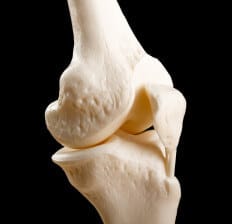
2. Provides Bone Building Vitamin K
Brussels sprouts are one of the best suppliers of essential Vitamin K, with over 270% of your daily value in every one cup.
Vitamin K is responsible for keeping the skeletal structure healthy and helps to prevent conditions related to loss in bone mineral density, like osteoporosis or bone fractures. Vitamin K also has the role of helping with blood clotting, bone calcification and turning off inflammation in the body.
Brussels sprouts provide a high dose of essential Vitamin K that can help offset problems associated with a poor diet and unhealthy lifestyle habits. Vitamin K deficiency can occur for many different reasons, including long-term use of antibiotics, digestive and intestinal problems such as chronic inflammatory bowel disease, and popular cholesterol-lowering pharmaceutical drugs.
Vitamin K is a fat soluble vitamin, meaning it gets absorbed in the intestines along with fat. For this reason, it’s most beneficial to eat Brussels sprouts with a source of healthy fat — roasting them in some coconut oil, for example.
3. Boosts the Immune System with Vitamin C
Brussels sprouts nutrition supply a large amount of immune-boosting vitamin C. Vitamin C acts as a protective antioxidant in the body, reducing inflammation and cell damage.
Essential for a strong immune system, in addition to many other functions within the body like normal growth and development, vitamin C’s antioxidants keep your immunity strong against bacteria, viruses, toxins and other harmful invaders that can cause disease and illness.
Because of the protective effects of vitamin C, Brussels sprouts help to maintain the health of your digestive tract, skin, eyes, teeth and gums. Vitamin C foods also protect your cells from free radical damage — and thereby reduce your risk of heart disease, cancer, autoimmune responses and more.
The protective properties of Brussels sprouts stop the immune system from operating on overdrive in which auto-immune reactions lead to further damage. One cup of cooked Brussels sprouts contains a whopping 164% of daily vitamin C needs!
4. Fights Inflammation & Heart Disease
According to research, cruciferous vegetables can significantly reduce the risk for heart disease. (4) The studies show high levels of inflammation are directly correlated with an increased risk for heart disease, stroke, diabetes and neurodegenerative disorders.
Brussels sprouts anti-inflammatory abilities are found in its supply of vitamin K, vitamin C, various antioxidants, and even small amounts of omega-3 fatty acids.
These vitamins, antioxidants and omega-3s work together to keep arteries clear of dangerous plague buildup, to lower cholesterol levels, to fight high blood pressure, to increase blood flow and to maintain healthy, strong blood vessels. Such significant benefits reduce the chance of heart attack and other cardiovascular complications that affect millions of people every year.
Brussels sprouts nutrition is also powerful because they contain many special phytonutrients, antioxidants and compounds — including sulforaphane, glucobrassicin, glucoraphanin and gluconasturtiian — that are all effective at reducing dangerous inflammation and heart disease.
Thesephytonutrients, antioxidants and compounds help to detoxify the body, support liver function, slow down free radical damage and prevent the formation of many common diseases including heart disease.
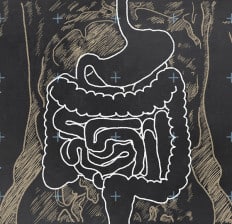
5. Restores Digestive Health
Glucosinolates found in Brussels sprouts can help protect the vulnerable lining of the digestive tract and stomach, reducing the chances of developing leaky gut syndrome or other digestive disorders.
At the same time sulforaphane found in Brussels sprouts facilitates in the body’s important detoxification process. They can help with digestion by preventing bacterial overgrowth from occurring in the gut microflora.
Just one cup of cooked Brussels sprouts provides 4 grams of dietary fiber, which is important for maintaining digestive health. Unfortunately, today the person’s average diet contains far less than the recommended 25 to 30 grams of dietary fiber needed from whole foods like vegetables, fruits, beans, nuts and seeds.
Fiber keeps your digestive system running smoothly, encouraging regular bowel movements, preventing constipation or diarrhea and detoxifying the body by pulling toxins and waste out of the digestive tract. (5)
The fiber found in Brussels sprouts also has other important benefits too, such as helping to reduce cholesterol levels and slowing down the absorption of glucose into the blood flow, which means it helps to protect from diabetes and heart disease.

6. Protects Eye & Skin Health
Brussels sprouts nutrition contains the important antioxidants vitamin C and vitamin A. Vitamin C helps to fight UV light damage that can lead to skin cancer or aged skin, while vitamin A offers protection against damage to the skin as well as the eyes.
Consuming both vitamins serves to naturally slow aging and to increase eye health, boost skin’s immunity, and foster new cell growth.
Studies indicate that those who eat high amounts of antioxidant-containing fruits and vegetables lower their risk for age-related macular degeneration.
Brussels sprouts nutrition includes the antioxidant zeaxanthin, which works to filter out harmful light rays from entering the cornea, helping to protect the eyes from damage and disorders like macular degeneration.
Meanwhile, Brussels sprouts’ sulforophane compounds also help to reduce oxidative stress damage to the eyes — protecting against blindness, cataracts, and other complications — and skin, warding off cancer and inflammation.
7. Provides a Source of Potassium for Proper Nerve Function
One cup of Brussels sprouts provides approximately 14% of your daily potassium needs. Potassium is an electrolyte that’s needed to maintain nerve function, muscle contraction, bone density, and all our nerve and muscle-related systems. (6)
Involved in proper cell function, potassium is crucial for almost every part of the body. It helps maintain the membrane structure of cells and the transmission of nerve impulses, which making it vital for healthy heartbeat rhythms. It also plays a role in enzyme functions that are involved in carbohydrate metabolism.
 8. Improves Brain Health
8. Improves Brain Health
Researchers have known for some time that the nutrients we get from food can greatly affect cognitive processes and emotions, in addition to slowing the aging process of the brain.
More and more studies are showing that dietary factors play a big part in neuronal function and synaptic plasticity of the brain because the gut and the brain have the ability to directly communicate with each other. Translation: Consuming high amounts of nutrients can protect brain health and improve mental function. (7)
What kinds of nutrients? Well, Brussels sprout’s powerful antioxidants vitamin C and vitamin A, in addition to other nutrients shown above, help to stop oxidative stress and inflammation that are capable of damaging brain cells.
9. Helps Maintain a Healthy Pregnancy through Folate
Brussels sprouts nutrition contains a high supply of folate, which is often called folic acid. Folate is a naturally occurring B vitamin that’s critical for a healthy pregnancy and delivery. Helping the body to effectively produce new cells, folate plays a role in copying and synthesizing DNA. (8)
Folate also helps the body utilize other B Vitamins in addition to protein, protects against anemia, boosts immune function, and can assist poor digestion.
Present in large doses in many leafy green vegetables, folate is important for the healthy formation of the fetus’s neural tube. Acquiring enough folate can help prevent such birth defects as spina bifida.
10. Balances Blood Sugar and Fights Diabetes
Certain green vegetables like Brussels sprouts contain an antioxidant known as alpha-lipoic acid, which has been shown to lower glucose levels.
These compounds can increase insulin sensitivity and prevent pre-diabetes from turning into diabetes. They can also help reduce complications for those with existing diabetes by managing blood glucose and preventing further oxidative stress or inflammation.
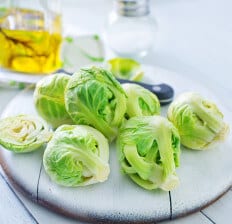
History of Brussels Sprouts
Brussels sprouts are part of the Brassica family, also known as cruciferous vegetables. Looking like miniature cabbages, Brussels sprouts are closely related to large types of cabbages and technically considered a form of cabbage themselves.
Long popular in Brussels, Belgium —which is where they get their name from — it’s believed that Brussels sprouts have been eaten regularly in Belgium since the 13th century, although it’s likely they go all the way back to Ancient Rome.
First written about in 1587 in texts originating in the Netherlands, Brussels sprouts were found to grow well in cool climates and became popular across the Netherlands and then eventually spread throughout the cooler parts of Northern Europe.
Commercial production of Brussels sprouts began in the U.S. during the 18th century, when French explorers and settlers brought them to the Southern states, especially to Louisiana.
During the 1940s, with many more thousands of acres of land becoming dedicated to growing Brussel sprouts, they especially grew in terms of popularity and availability.
Today, Brussels sprouts are enjoyed across Europe and North America, where they are harvested almost year round. Several thousands of acres are planted in coastal areas of California, the U.S state that produces the highest yield of Brussels sprouts due to its coastal fog and cool temperatures year-round.
They can usually be found for sale at most farmer’s markets in the fall and early winter months, when they’re at their best.
Purchasing Brussel Sprouts
When purchasing Brussels sprouts, look for those that are tightly packed with its pieces pressed firmly together and not splayed open. You want to look for a uniform texture and color across the sprouts, with no noticeable dark patches or wilting.
In order to ensure its nutrients are all still intact, it’s best to use Brussels sprouts within three to seven days after purchasing them if possible.
Uncooked sprouts will remain fresh in your refrigerator longer than when they are cooked, but either way, you can extend their shelf life by storing them in a sealed dry container or plastic bag if possible, along with a paper towel to absorb moisture.
Cooking Brussel Sprouts
Brussels sprouts are usually most loved when roasted or sauteed. Oven-roasting Brussels sprouts helps to bring out their sweet, almost nutty flavor. This method also keeps them crispy and reduces the unpleasant, sulfurous odor that cruciferous vegetables can have.
Although they may taste best when cooked thoroughly, lightly cooking cruciferous veggies is the best way to keep their nutrients intact since their special compounds are often delicate and cannot withstand high heats.
Steaming Brussels sprouts just until they are tender is a good way to make them taste good without killing their beneficial nutrients. The same can be done by lightly cooking them on the stovetop with a drizzle of olive oil or coconut oil.
Brussels Sprout Recipes
Brussels sprouts have a distinct flavor that goes well with garlic, sea salt, mustards, spices, vinegars, nuts, dried fruit and maple syrup.
Although roasting them is the most popular cooking method, you can also chop raw or cooked Brussels sprouts to add to a salad, pasta sauces, soups and so much more.
Simply serving sauteed Brussels sprouts with some cooked onions and garlic makes a nutritious side dish — one that pairs well with a grass-fed steak, wild-caught salmon or many other types of meals.
Don’t forget that sprouts themselves contain a decent amount of protein, with four grams per cup of cooked Brussels sprouts. When combined with whole grains or beans, Brussels sprouts can make a complete protein.
Try adding these nutritional gems to your diet using one of these healthy Brussels sprout recipes:
Turkey Bacon Brussels Sprouts Recipe
Total Time: 25 minutes
Serves: 4-6
INGREDIENTS:
- ½ lb sliced turkey bacon
- ¼ cup coconut oil
- 2/3 cup pine nuts
- 2 lb Brussels sprouts, cored and shredded
- 1 onion, chopped
- 3-4 garlic cloves, minced
- Sea salt and black pepper to taste
DIRECTIONS:
- Cook bacon on medium-high heat in a skillet. Drain, crumble and set aside.
- In a skillet, melt coconut oil over medium heat. Add pine nuts and stir until browned. Add Brussels sprouts, garlic and onions. Add the seasoning and cook until sprouts are tender (10-15 minutes).
- Stir in bacon just before serving.
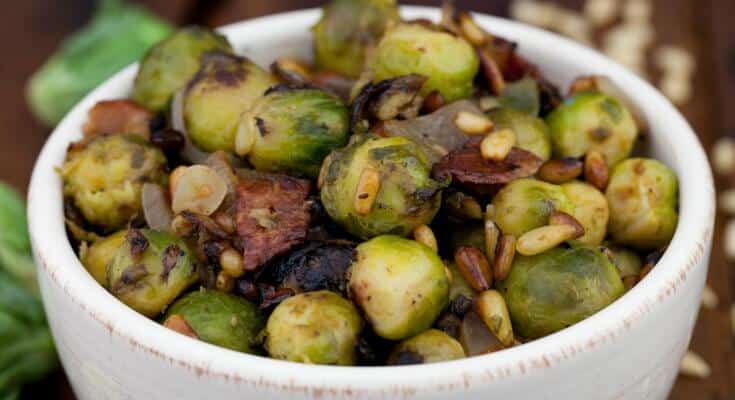
Photo: Turkey Bacon Brussels Sprouts Recipe / Dr. Axe
Warm Autumn Salad Recipe
Total Time: 55 minutes
Serves: 2-4
INGREDIENTS:
- 1 small butternut squash
- 2 apples, chopped
- 1/2 red onion, chopped
- 1 cup Brussels sprouts, chopped
- 2 tablespoons coconut oil
- 1/4 cup crumbled goat cheese
- 1/4 teaspoon cardamom
- chopped parsley as garnish
- Sea salt and black pepper to taste
DIRECTIONS:
- Preheat oven to 400 degrees F.
- Mix in bowl, squash, apples, Brussels sprouts, onions, oil, cardamom, salt and pepper.
- Place on a baking sheet and roast for 45-50 minutes, tossing every 15 minutes.
- Remove and let cool for 5 minutes.
- Serve on plate and top with goat cheese and parsley garnish.

Photo: Warm Autumn Salad Recipe / Dr. Axe
Baked Brussels Sprouts Recipe
Total Time: 45 minutes
Serves: 1-2
INGREDIENTS:
- 1 bunch Brussels sprouts, halved
- 1 small red onion, cut into crescents
- 1/2 cup walnuts, chopped
- 2 tablespoons ghee or coconut oil, melted
- Sea salt and black pepper
DIRECTIONS:
- Preheat oven to 425 degrees F.
- Combine Brussels sprouts, red onion and walnuts in a bowl; mix in ghee until evenly distributed.
- Sprinkle with salt and pepper and spread mixture out on a rimmed baking sheet.
- Roast until slightly browned, about 25-40 minutes.
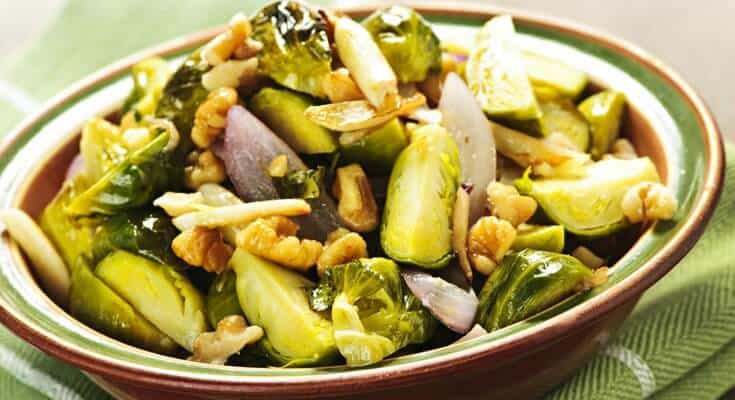
Photo: Baked Brussels Sprouts Recipe / Dr. Axe
Interactions of Brussels Sprouts
There is some concern over preliminary observations that cruciferous vegetables, including Brussels sprouts, can have a negative effect on thyroid function.
Cruciferous vegetables are the major source of glucosinolates in the human diet, and certain glucosinolates are converted into goitrogenic species, which may have an impact on thyroid function. (8) However, studies now show that the benefits of cruciferous veggies outweigh the bad.
According to one recent study, when 10 volunteer subjects included Brussels sprouts in their normal diet every day for a period of time, the sprouts had no effect on thyroid function.
Researchers believe that even though the sprouts contain high concentrations of glucosinolates,these molecules become inactive when cooked and don’t effect the thyroid negatively.
For this reason, experts still strongly recommend consuming cruciferous veggies and Brussel sprouts to the general public for their many proven health benefits.
